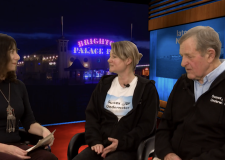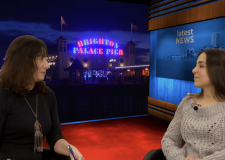Poppies planted to mark World War One centenary
A sea of wild poppies will pop up and paint the town red this summer as Brighton and Hove marks the centenary of the Great War.
Brighton and Hove City Council’s parks staff are currently sowing hundreds of seeds on verges, parks and public places across the city.
The poppies are set to bloom in June and will be followed by other red flowers throughout the season.
The seeds are being sown in all the council’s wildflower sites.
These include Edward Road; Eastern Road; the former bowling greens in Preston Park; outside Rottingdean bowling green and near the War Memorial in Old Steine.
The seeds will also be spread on the grass verges in many housing estates in the ‘mowing margins’.
Councillor Geoffrey Bowden, chairman of the council’s economic development and culture committee, said: “The sight of thousands of poppies emerging on wildflower sites across the city will be both stunning and poignant – a fitting way to mark the historic anniversary of the start of World War One.
“The displays will also highlight the range of other events and commemorations being planned across the city.”
The poppy, which is one of the few plants to grow in upturned earth of western Europe, has been used since 1920 to commemorate soldiers who have died in war.
It was also referenced in “In Flanders Fields”, a poem written during the World War One by Canadian physician Lieutenant Colonel John McCrae.





















